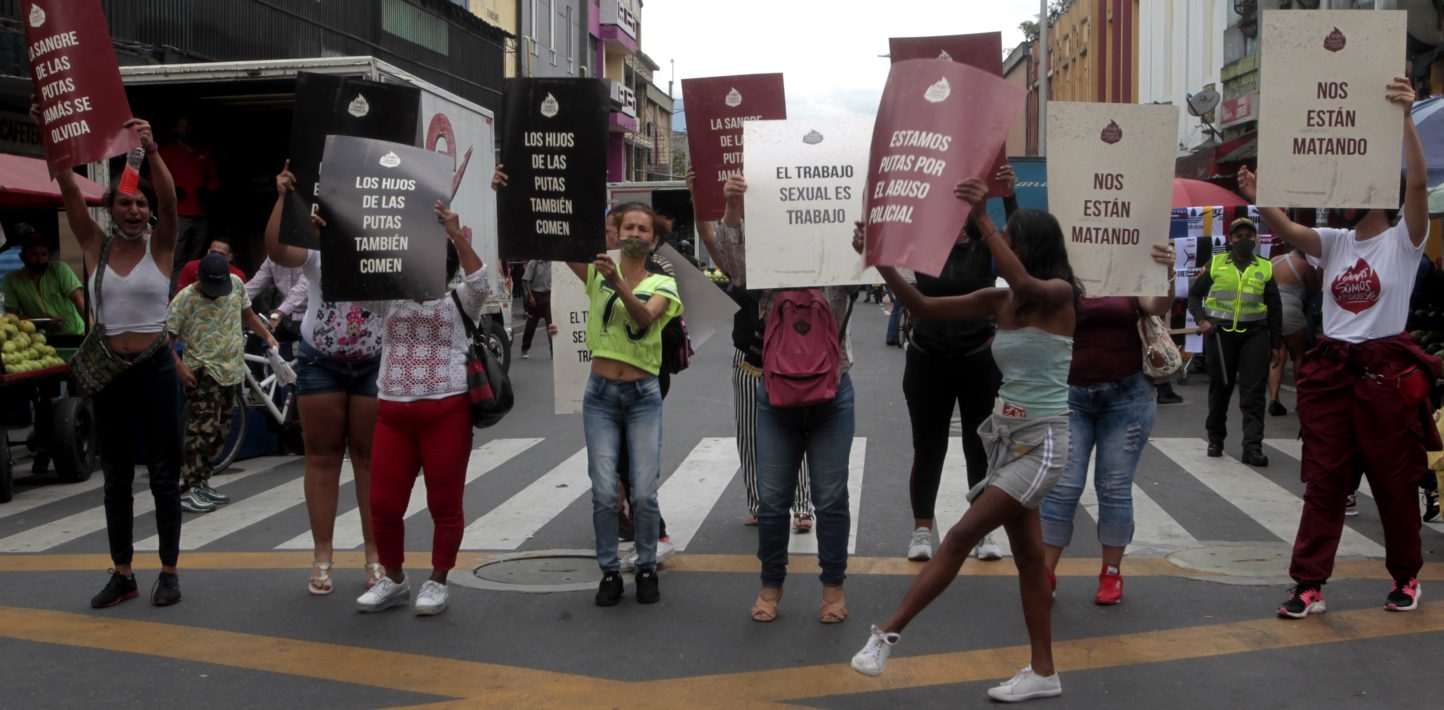Latin America and the Caribbean suffer from high levels of gender-based violence that are rarely investigated effectively. For those who engage in sex work, the large number of abuses, particularly at the hands of state officials, is compounded by profound discrimination that makes it almost impossible for them to obtain justice.
According to research published this week by the Network of Latin American and Caribbean Sex Workers (Red de Trabajadoras Sexuales de Latinoamérica y el Caribe, RedTraSex) more than 1,200 sex workers in 15 countries in Latin America and the Caribbean reported having experienced some form of human rights abuse since 2016. Among the abuses most frequently reported are discrimination, harassment, intimidation, threats, physical assault, rape and extortion.
According to their statements, most of these human rights violations occurred at the hands of state officials, including the police. In most cases, the victims decided not to file a complaint out of fear, because the perpetrator belonged to one of the security forces, or because they knew their complaint would not go anywhere. They had reason not to trust the system. Those who try to file complaints are often demoralized by the process, ignored or mistreated.
For migrant sex workers, the situation is even more difficult. The fear of being deported, combined with the xenophobia that many of them face on a daily basis, create barriers that are difficult to overcome.
The findings of the RedTraSEx research are consistent with a series of reports by Amnesty International on the situation of vulnerability and abuse experienced by many sex workers around the world.
In March 2019, I personally met with various authorities in the Dominican Republic to discuss the findings of Amnesty International research that found that in the Caribbean country police routinely humiliate, insult and abuse sex workers. They do so as a form of social control, designed to punish them for transgressing social norms of “acceptable” femininity and sexuality.
Even though this type of violence by the police amounts to torture or ill-treatment under international law, states tend to do little to stop it. This is, in part, because the abuses are a consequence of the high levels of stigma and discrimination that sex workers face in many societies.
Verónica Lino, who has been engaging in sex work and activism in Cochabamba for more than 15 years, says that in Bolivia, where sex work is partially regulated, exploitation and abuse are also commonplace. She explains that the system tends to favour the landlords of the premises where women work and rent rooms and that working conditions are generally very poor.
With the arrival of the Covid-19 pandemic, things got even worse.
“When the stores closed and you couldn’t go to work for eight months, the girls no longer knew how they were going to eat. Many began to sell their things. Many lost the rooms where they lived. You couldn’t live any more and nobody did anything for this sector,” explains Veronica.
Without a place to take their clients, or support from the authorities, the workers began to organize. First they set up a WhatsApp group where they discussed options, ideas, possible help and strategies. They could not work on the streets because there they were at greater risk of ill-treatment and torture by the police.
Veronica and 20 other sex workers began knocking on doors, demanding their rights. Without planning it, she became a role model for her co-workers. Complaints began to arrive along with the calls asking for help. Veronica learned how to document cases of abuse and support survivors fighting for justice. Today, she travels around the country collecting information and providing support for those who need it.
“Word is getting around. Co-workers are informing each other and so girls come to me to tell me about their problems. It is really shocking in some cases, very shocking. I have ended up crying with them many times because at that point a sex worker is so abused by the landlords, the security guards, the clients,” says Veronica and she describes how because of her human rights work some landlords will not rent her a place where she can work.
Although on paper, in their constitutions for example, most countries in the region protect everyone, including sex workers, from discrimination, and criminal codes tend not to categorize the sale and purchase of sex as a crime, in practice the lack of laws to protect sex workers from stigma, discrimination and violence, and the failure to investigate or prosecute the perpetrators, whether private individuals or state officials, leaves sex workers in a situation of extreme vulnerability.
Time and again when we have spoken with sex workers, they have said what they want is a place at the table, for their voices to be heard and their needs taken into account when public policies that affect them are developed.
Veronica and other organized sex workers are calling on states to recognize sex work as work. They say that a law that regulates sex work and recognizes and protects them would enable them to move out of the underground, providing a series of protections, the current absence of which leaves them at risk of abuse.
“With a law, we would have greater recognition,” she says. “Without it, they [governments] control our bodies.”


